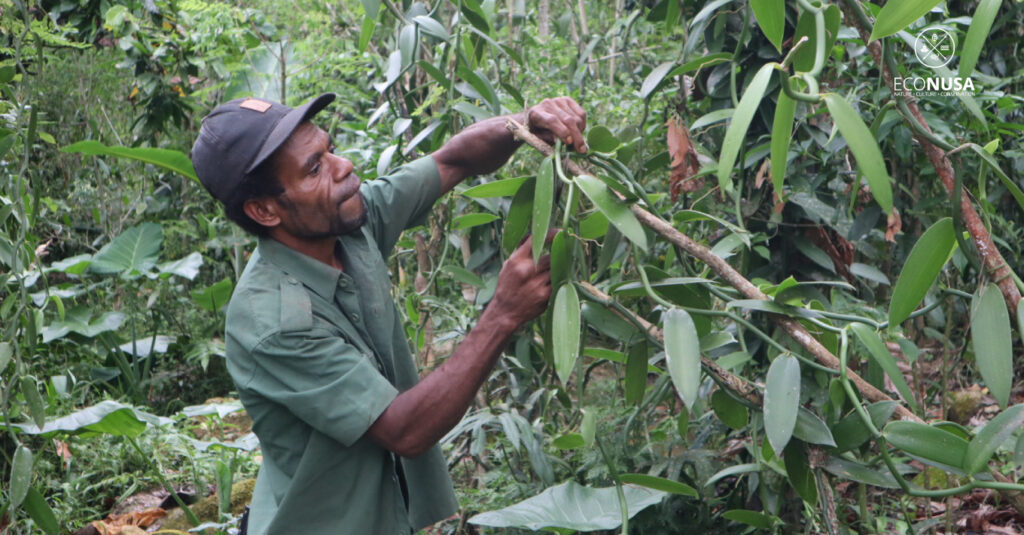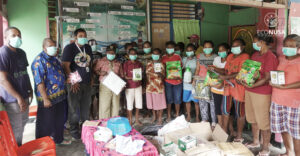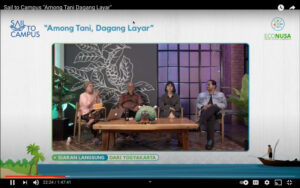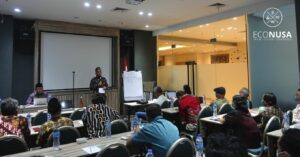
Vanilla (Vanilla planifolia) is known as one of the most valuable spices in the world and has become a highly sought-after commodity in the international market. The high demand for this commodity is attributed to its unique sweet and aromatic flavor, making it a favorite taste and fragrance in food, beverages, and perfumes.
The intricate nature of vanilla cultivation is a key factor driving its high price. Thus, growing vanilla can serve as a means to enhance local economies. Many small-scale farmers and communities rely on this product as their primary source of income. By cultivating high-quality vanilla, they can attain better financial returns and improve their overall standard of living.
Read Also: A Travel Note: The Ireres Tribe Unites to Protect Indigenous Territories
Recognizing this potential, EcoNusa encourages farmers in the Keerom and Jayapura regencies of Papua to cultivate vanilla. The program aims to provide benefits in supporting household livelihoods and help cover the costs of education and healthcare for the farmers’ family members.
Farmers from six villages in two regencies began planting vanilla in August 2023 with assistance from EcoNusa. The six villages were Warlef, Molof, Uskwar, and Wembi in the Keerom Regency, as well as Sarmai Atas Village and Rephang Muaif Village in the Jayapura Regency.
The planting time was implemented in August which was 6 months after the protective trees planted and the mulch started to grow. The planting of protective trees was carried out by EcoNusa with the same communities during Village School activity back in February – March 2023. Gamal trees (Gliricidia sepium) were selected as the protective trees for vanilla. The vanilla varieties planted were Tahiti and Planifolia.
Read Also: The Story of Cacao Farmers in Papua: from being Successful to Now being Struggle
Kosmas Boryam, a farmer from Wembi Village, expresses his gratitude to the EcoNusa for not only providing knowledge about vanilla cultivation through the Village School but also for providing seedlings to the farmers in his village. He then motivates the farmers in his village to take vanilla cultivation seriously to improve their economy.
“I will prove it through vanilla. Will this plant be the answer to the future of my 4 children who are currently in school? It all depends on my commitment, and I am fully committed that from vanilla farming, my children must be able to go to college,” he says.
Read Also: Wersar and Tapiri Communities Learned Semi Modern Farming in Village School
Head of Rephang Muaif Village, Alberthina Demotekai also expressed her excitement after receiving 100 vanilla seedlings from EcoNusa. She promised to allocate 100 million Indonesian Rupiahs for vanilla farms. “Apart from planting them on the current selective land, the village government has also prepared a one-hectare plot. This 100 million Rupiahs will be used for cleaning the areas, purchasing gamal trees as protective trees, and the vanilla seedlings,” she explained.
Alberthina has also urged her community members to put full dedication on vanilla cultivation. She believes that vanilla holds the promise of becoming a significant source of income in the future. “The government will discontinue direct cash assistance next year. I consistently remind the community not to rely solely on cash aid and village funds. Let’s invest in vanilla cultivation as it can provide us with a source of income,” she concluded.
Editor: Nur Alfiyah, Swiny Adestika




